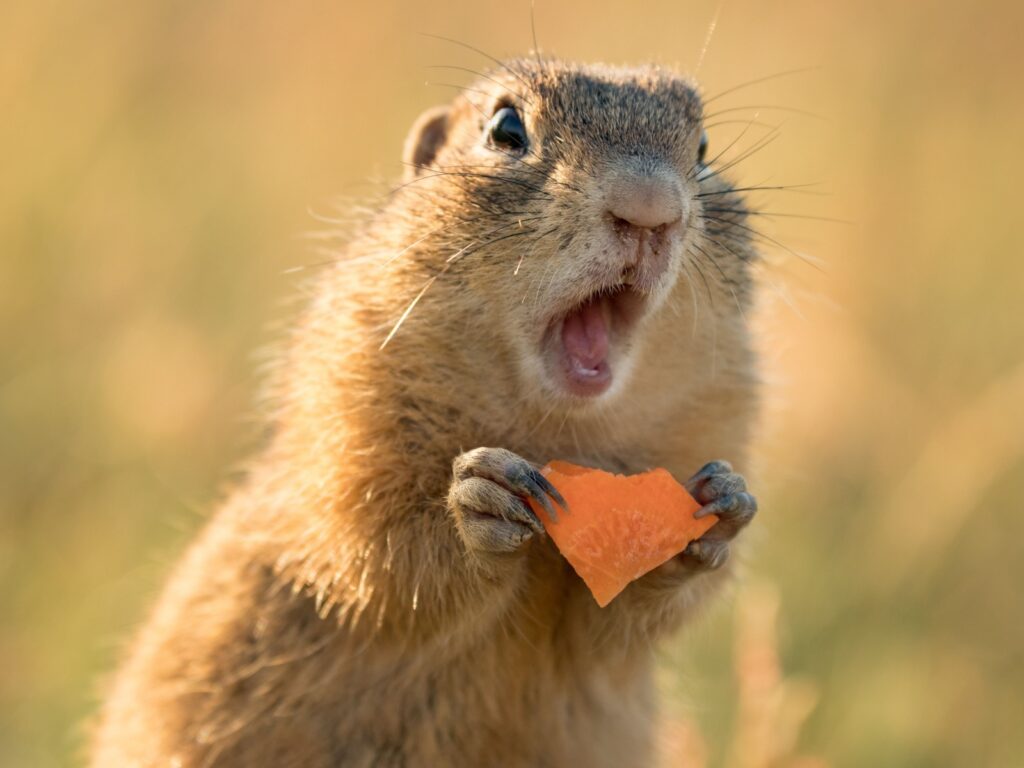Imagine a fish so beautiful it looks like it belongs in a fairy tale, yet so dangerous it’s wreaking havoc on marine ecosystems across the globe. That’s the lionfish for you – a stunning yet destructive invader that’s taken the Atlantic Ocean by storm. These striped marauders, native to the Indo-Pacific, have become one of the most abundant top predators in the temperate and tropical Atlantic Ocean. With their voracious appetites and lack of natural predators in these new waters, lionfish are reshaping entire underwater communities.
Decimating Native Fish Populations

Lionfish are not picky eaters, and that’s bad news for local fish. These invaders have a huge appetite and can eat prey up to half their own body size. They gobble up smaller fish and crustaceans, often targeting species that play crucial roles in maintaining reef health. This unchecked predation is causing rapid declines in native fish populations, throwing off the delicate balance of marine ecosystems.
Outcompeting Local Predators
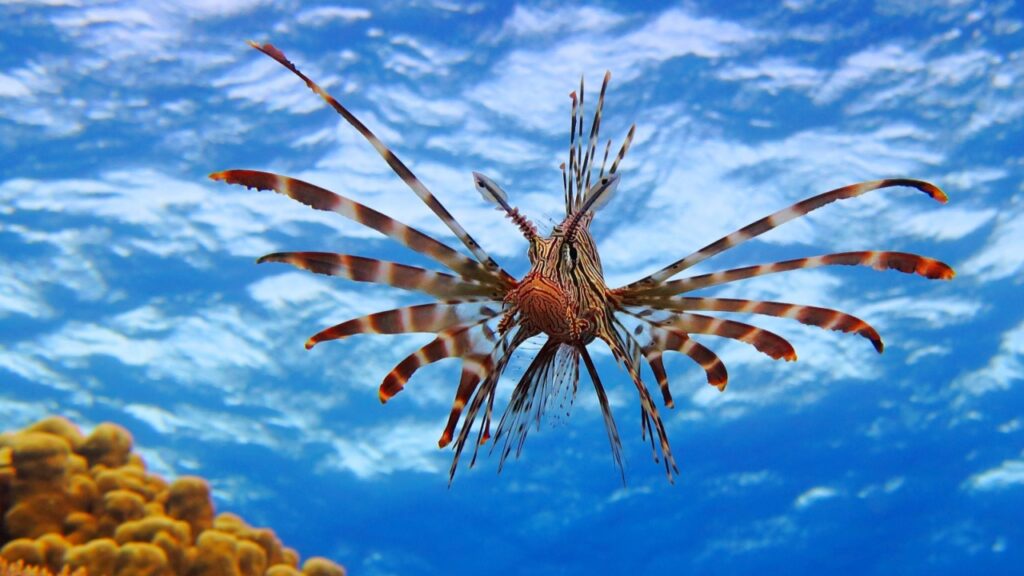
In their new Atlantic home, lionfish don’t just eat – they outeat the competition. These efficient hunters are decimating local fish populations, leaving less food for native predators. This means that even fish that aren’t directly eaten by lionfish are affected. Local predators like groupers and snappers are finding it harder to find food, which can lead to declines in their populations too.
Disrupting Coral Reef Health

Coral reefs are delicate ecosystems that rely on a balance of different fish species to stay healthy. Lionfish are throwing this balance off kilter. By eating herbivorous fish that keep algae in check, lionfish are indirectly causing algae to overgrow on corals. This can smother and kill coral, destroying the very habitat that many marine species call home.
Rapid Reproduction Rates

One of the reasons lionfish are such successful invaders is their ability to reproduce quickly. A single female lionfish can release up to 2 million eggs per year. These eggs are encased in a mucus sack that deters predators, giving the baby lionfish a better chance of survival. This rapid reproduction rate means that even if some lionfish are removed, their populations can bounce back quickly.
Lack of Natural Predators
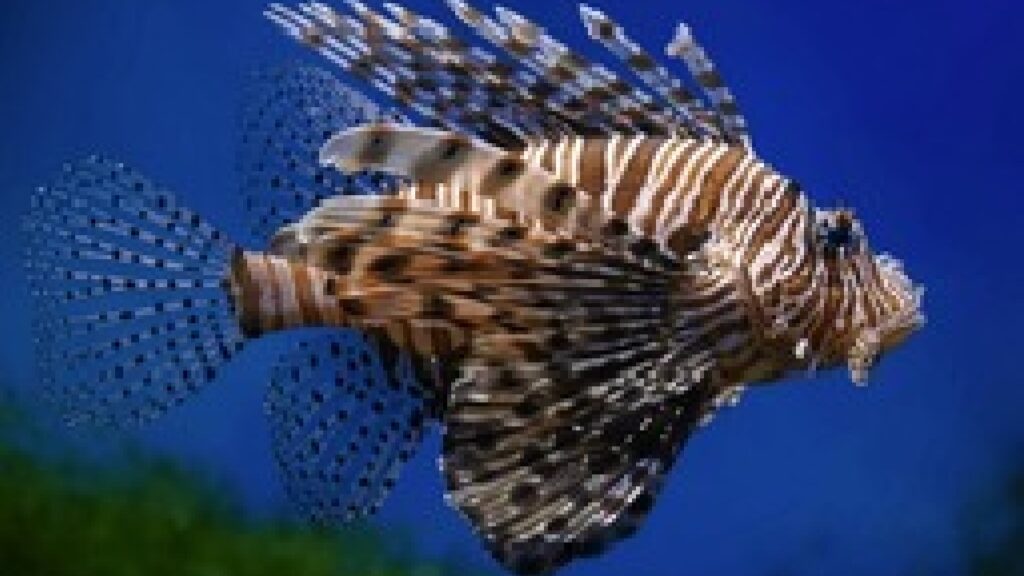
In their native Indo-Pacific waters, lionfish have natural predators that keep their populations in check. But in the Atlantic, they have very few predators. This lack of population control allows lionfish to thrive and spread unchecked, further amplifying their impact on local ecosystems.
Adapting to New Habitats
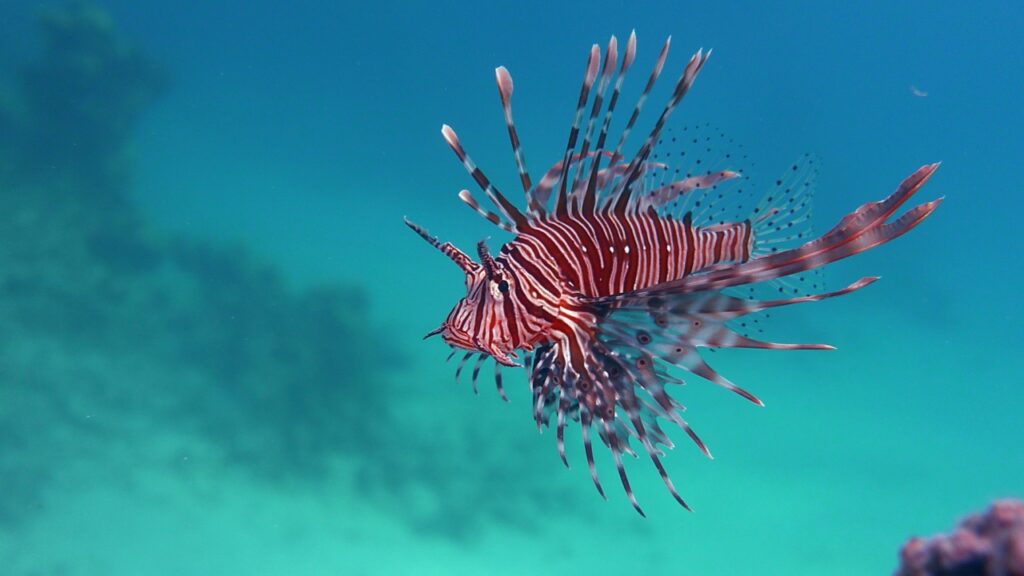
Lionfish are not just reef dwellers. They’ve shown an impressive ability to adapt to various habitats, from shallow mangroves to deep offshore waters. This adaptability allows them to spread to new areas and impact a wide range of marine ecosystems. They’ve even been found in estuaries, showing they can tolerate lower salinity levels than previously thought.
Impacting Commercial Fisheries
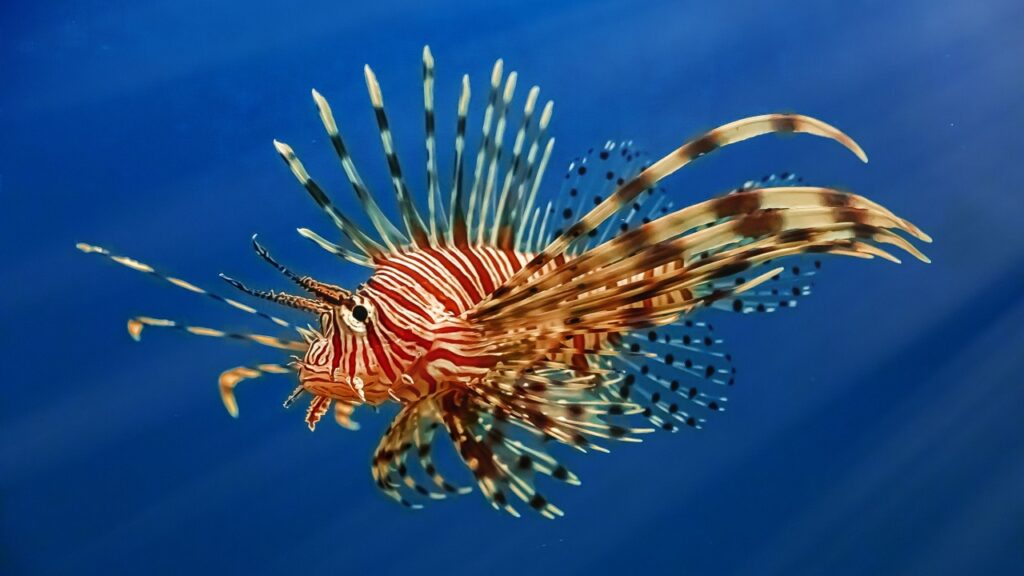
The lionfish invasion isn’t just an ecological problem – it’s an economic one too. By preying on juvenile fish of commercially important species, lionfish are threatening local fishing industries. This can have serious consequences for coastal communities that rely on fishing for their livelihoods.
Altering Food Webs
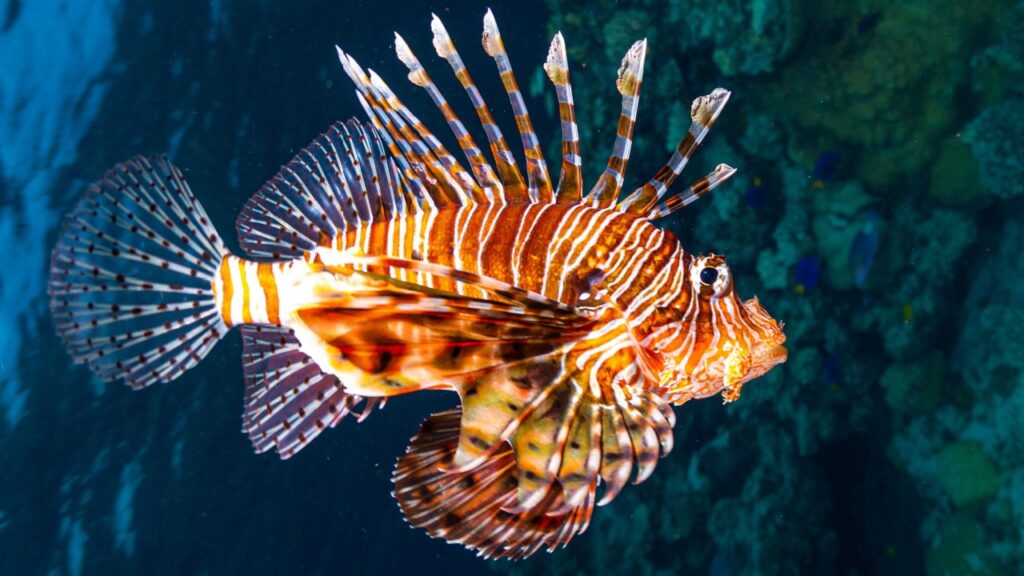
Lionfish are disrupting entire food webs in invaded ecosystems. As generalist predators, they eat a wide variety of prey, often consuming species that are food sources for other predators. This can lead to cascading effects throughout the food web, potentially altering the entire structure of marine communities.
Spreading to New Areas
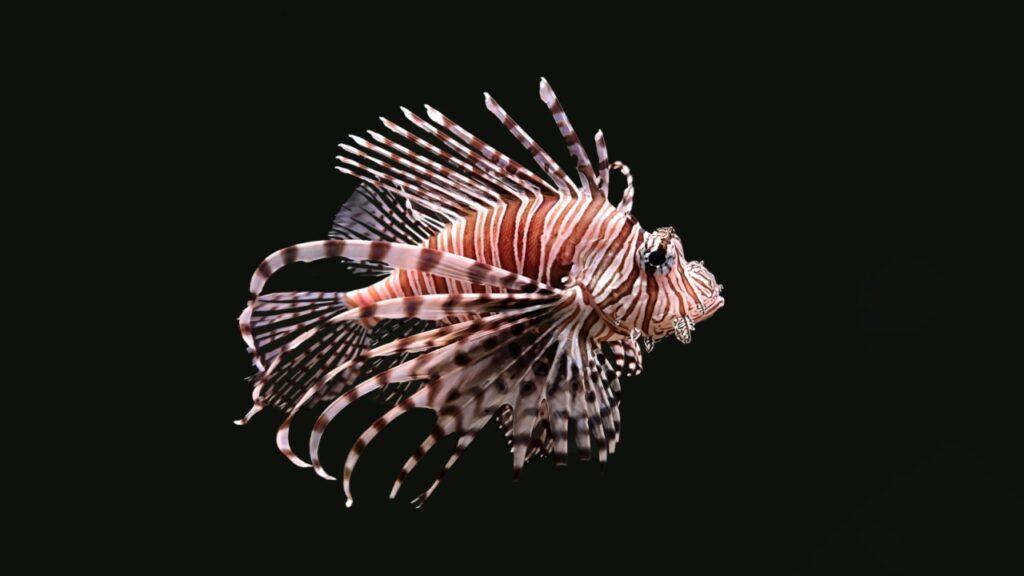
The lionfish invasion shows no signs of slowing down. These fish are continually spreading to new areas, with recent reports showing they’ve reached as far south as Brazil. As they invade new territories, they bring their destructive impacts with them, threatening biodiversity in each new area they colonize.
Resisting Control Efforts
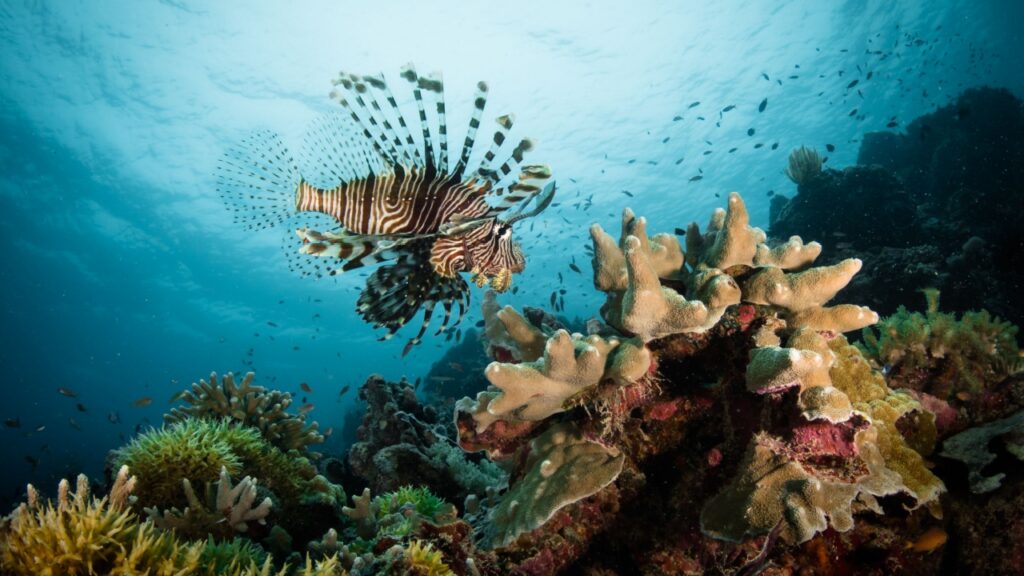
Controlling lionfish populations has proven challenging. Traditional fishing methods are often ineffective because lionfish don’t readily take bait. While spearfishing can be successful, it’s labor-intensive and can only target lionfish in accessible shallow waters. The fish’s ability to live in deep waters makes complete eradication nearly impossible.
Changing Native Fish Behavior
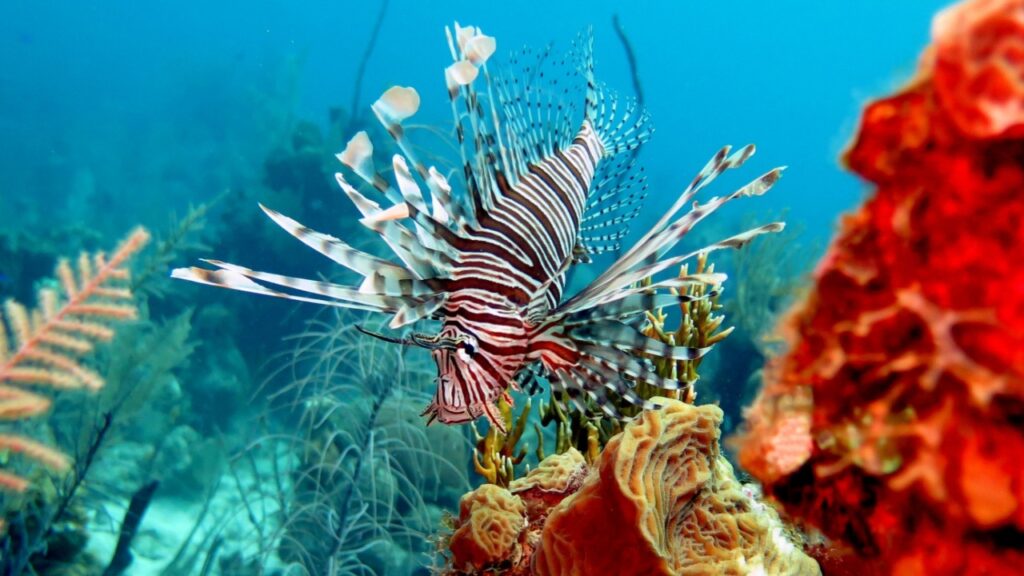
The presence of lionfish is causing changes in the behavior of native fish species. Some fish are learning to avoid areas where lionfish are present, potentially limiting their access to food or shelter. This behavioral shift can have ripple effects throughout the ecosystem.
Impacting Endangered Species
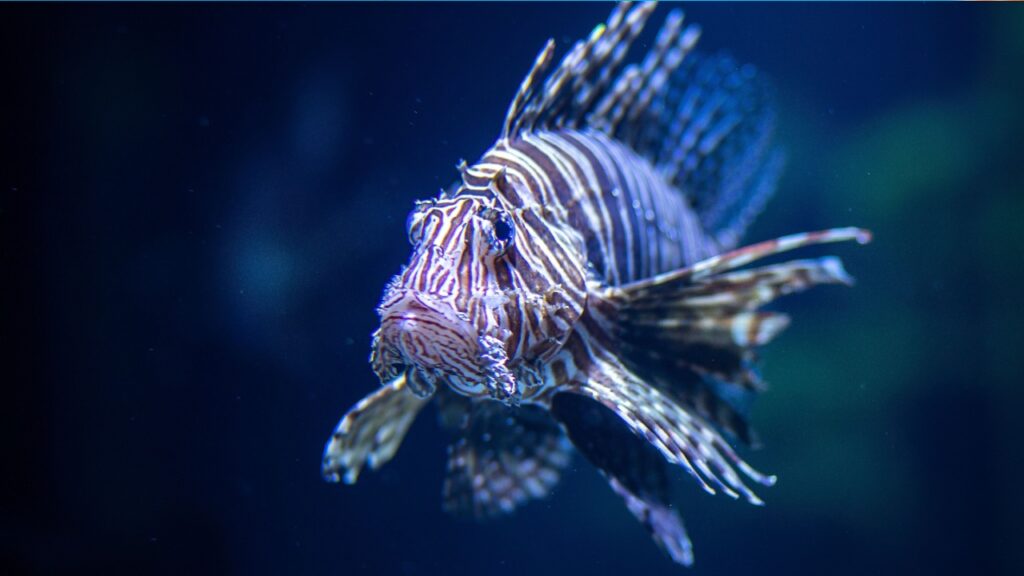
Lionfish don’t discriminate in their predation, and this includes endangered species. In some areas, they’ve been found to prey on critically endangered fish, putting further pressure on already vulnerable populations. This adds another layer of complexity to conservation efforts for these at-risk species.
Altering Nutrient Cycles
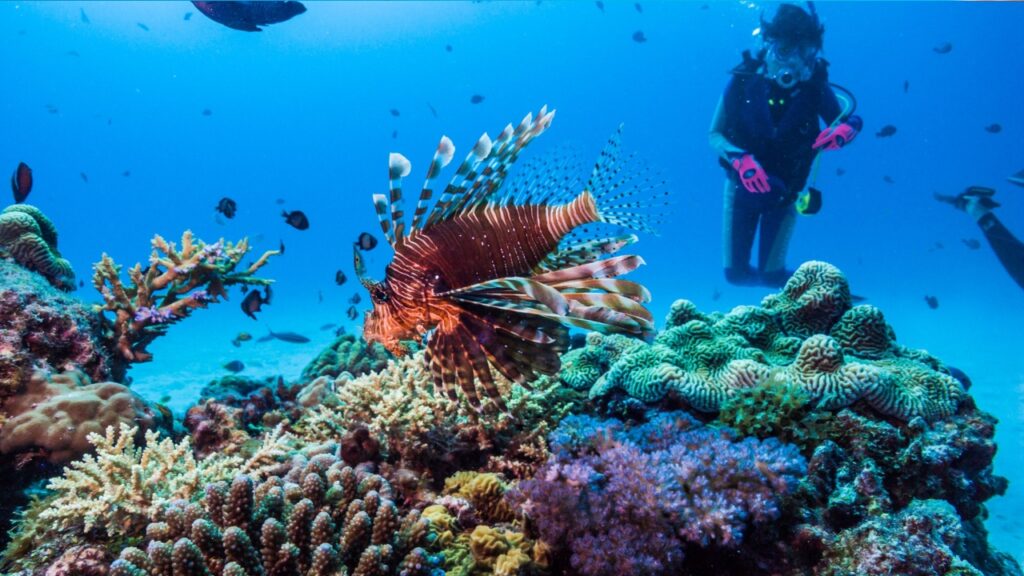
By consuming large numbers of herbivorous fish, lionfish are indirectly affecting nutrient cycles on reefs. Herbivorous fish play a crucial role in recycling nutrients through their feeding and excretion. With fewer of these fish around, the way nutrients move through the ecosystem is changing, which can affect everything from algae growth to coral health.
Inspiring New Research and Collaboration
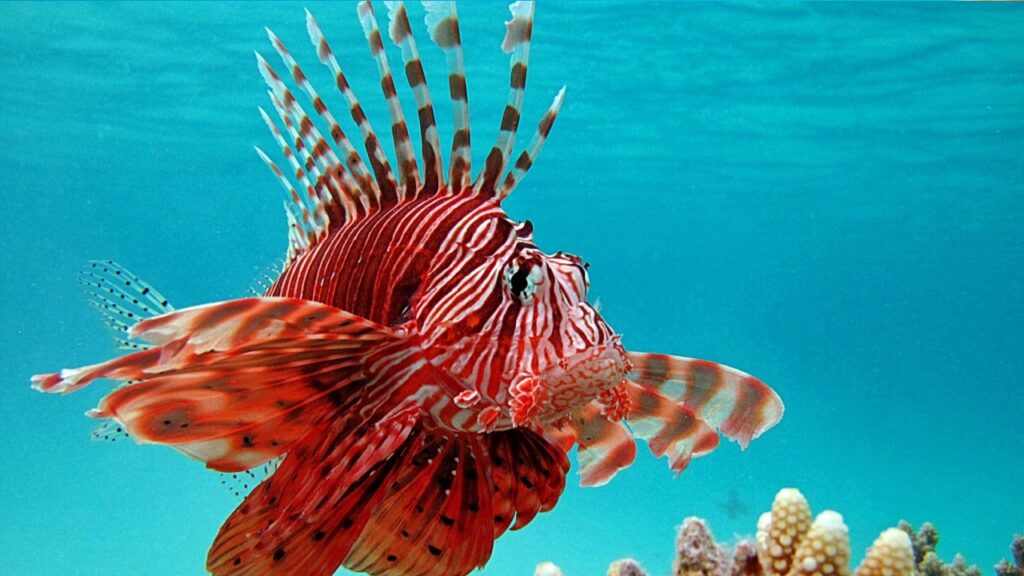
While the lionfish invasion is undoubtedly a problem, it’s also spurring new research and collaborative efforts. Scientists, conservationists, and even local communities are coming together to study the invasion’s impacts and develop innovative control methods. This increased focus on marine conservation could have positive spillover effects for other environmental issues.
Becky is a fervent wildlife enthusiast and pet care expert with a diploma in canine nutrition. Her love for animals stretches beyond the domestic, embracing the wild tapestry of global fauna. With over a decade of experience in animal welfare, Becky lends her expertise to OutlandishOwl through insightful articles, captivating wildlife information, and invaluable guidance on pet nutrition. Her work embodies a deep commitment to understanding the intricate lives of animals and a passion for educating others on sustaining natural habitats. Becky's hands-on conservation efforts and her knack for translating complex dietary science into practical pet feeding tips make her an indispensable voice for creatures great and small.



